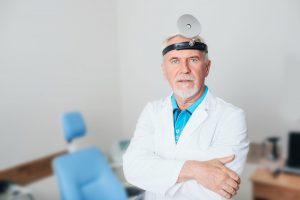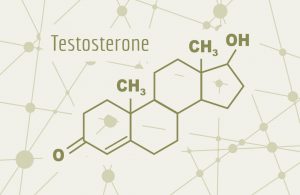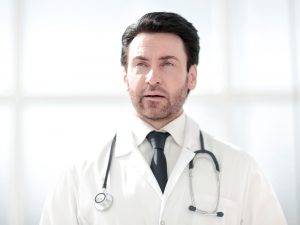Video Link: https://vimeo.com/336716928
Video Download: Click Here To Download Video
Video Stream: Click Here To Stream Video
Video Link: https://vimeo.com/337039935
Video Download: Click Here To Download Video
Video Stream: Click Here To Stream Video
The Effects of Hypogonadism on Men
Learn more about the causes and cures of this ever-increasing problem
Your physician enters the room with a somber demeanor and announces, "Your blood tests are back, and it's confirmed: you have hypogonadism."
The response of many men to this somewhat confusing pronouncement is often: "what's that?"
The medical, professional, clinical definition of hypogonadism is the reduction or absence of hormon e secretion or other physiological activity of the gonads (testes).
e secretion or other physiological activity of the gonads (testes).
The Endocrine Society practice guideline has a similar definition: Hypogonadism in men is a clinical syndrome that results from failure of the testis to produce physiological levels of testosterone (thus androgen deficiency) and an average number of spermatozoa due to disruption of one or more levels of the hypothalamic-pituitary-testicular axis.
In plain English, this means the decreased production of the critical male hormones that make men men…especially testosterone and dehydroepiandrosterone (DHEA).
This condition is sometimes given the moniker "low t."
Then more depressing news follows. All-too-often, older men are told that their condition is specifically called Age-Associated Hypogonadism, sometimes referred to as Late-onset hypogonadism.
At around age 31, a man's levels of growth hormone and testosterone begin to  decline at a rate of approximately 10% per decade, depending on many health factors like family history, genetics and lifestyle behaviors.
decline at a rate of approximately 10% per decade, depending on many health factors like family history, genetics and lifestyle behaviors.
This is usually due to a combination of impaired testicle function and lower hormonal input from the brain.
Since this condition creeps into a man's life slowly, the effects, however grave, appear gradually and may go undetected for extended periods.
Therefore, they are attributed to healthy aging, and they may be told that there are no treatments that can reverse this condition.
Men are told to make lifestyle changes: lose weight, exercise, improve your diet, sleep more, control stress, etc.
These are all great suggestions. But at best, they can only slow down the loss of testosterone and the debilitating conditions resulting from low testosterone ("Low-T") levels.
But you won't hear that from our HRT clinic.
There are an estimated 4 to 5 million men in the United States that are suffering from hypogonadism, and as a man's age increases, so does the frequency of this affliction.
Recent surveys have concluded that over 60% of men aged 65 and older experience a drop in natural testosterone levels.
Sadly, as mentioned above, this condition is often not diagnosed or treated, with approximately a mere 5% of hypogonadal men undergoing testosterone  replacement therapy.
replacement therapy.
But at our clinic, things are different. We take a holistic approach to the problem. We begin with an accurate diagnosis.
Different afflictions cause your Low-T symptoms, and we will determine precisely what your condition is. Then we'll swing into action, and directly attack the cause of these symptoms.
There is no reason for you to continue suffering because…
These debilitating symptoms are anything but fun
Here are a few of the results of age-associated hypogonadism:
Shrinking muscles and maddening loss of strength
Constant, chronic fatigue
Increasing difficulty maintaining balance
Accumulating slabs of ugly, disease-producing fat
Weakened bones, since bones lose their mineral density when testosterone levels plummet. This makes them especially vulnerable to fracture in the event of a fall…which may occur as a direct consequence of the conditions listed above
Diminished or complete loss of libido and decreased spontaneous erections
Ever-increasing nagging joint aches and pains
The stiffness of the body, with increasing loss of flexibility
Loss of appetite, which makes all of the above afflictions worse
Brain fog, characterized by an inability to concentrate and experiencing memory difficulties
Insomnia, with difficulty with both falling asleep and staying asleep
Hypertension
Kidney problems
The onset of the feared and hideous metabolic syndrome. This condition is several different conditions, none of them good: elevated blood sugar levels, ever-expanding waistline, skyrocketing cholesterol and triglyceride levels, inflated blood pressure - all of which dramatically increase the risk of severe health problems such as diabetes, stroke, cancer, and heart attack. Definitely, something to be avoided at all costs
Irritability and depression. The zest for life begins to leave. And why wouldn't it? To investigate the link between depression and hypogonadism, Shore and Associates studied computerized medical records from a regional Veterans Administration. The subjects were depressed men comprised of a mixture of Low-T patients and those with normal testosterone levels.
The psychiatrists that were treating the sad men did not know any patient's testosterone levels, so their results were not influenced by any pre-existing conditions. The study consisted of 278 men, and the
 results showed that depression was higher in men diagnosed with hypogonadism (21.7 percent) than men who did not suffer from hypogonadism (7.1 percent). The conclusion? The link between Low-T and depression is there and has been proven time and time again, beyond a shadow of a doubt
results showed that depression was higher in men diagnosed with hypogonadism (21.7 percent) than men who did not suffer from hypogonadism (7.1 percent). The conclusion? The link between Low-T and depression is there and has been proven time and time again, beyond a shadow of a doubtDiminished quality of life. All of these symptoms take a terrible toll on a man's ability to function in all fundamental spheres of existence: physical, emotional, social, sexual and cognitive
Lower life expectancy. Studies have shown that men over age 40 with normal testosterone levels had a mortality rate of 20%, while men with Low-T had a rate of 35%, over a mean follow-up of 4.3 years
There are additional categories of male hypogonadism Age-associated hypogonadism not by itself a complete diagnosis. is There are other similar classifications of hypogonadism. Here is a list of them:
Primary Hypogonadism. This is directly a result of testicular problems. The causes range from Klinefelter syndrome (A genetic condition in which a male is born with an extra copy of the X chromosome, causing the testes to under-develop), Noonan's syndrome (a genetic disorder that prevents normal development in various parts of the body, often resulting in slow progress, short stature, heart defects and other physical ailments), mumps orchitis (testicular inflammation), orchiectomy (surgical removal of one or both testicles), undescended testes, aging and chemotherapy
Secondary Hypogonadism. With this condition, the testicles are healthy, so the cause is usually an imbalanced hormonal system. This can result in Pituitary pathology, Kallman Syndrome (failure to start or complete puberty), chronic opioid abuse, aging, Prader-Willi syndrome (a genetic disorder that causes obesity, intellectual disability, and shortness in height), and uncontrolled stress
Normogonadotropic Hypogonadism. This condition causes low sperm counts, and although levels of Follicle-stimulating Hormone (FSH) and Luteinizing Hormone (LH), are healthy, there is a low level of serum T (total testosterone), resulting in fertility problems
Hypogonadotropic Hypogonadism. This is a form of hypogonadism that is due to a problem with the pituitary gland or hypothalamus
There are more causes of hypogonadism
As mentioned earlier, aging is usually the culprit when hypogonadism raises its ugly head. But there are other catalysis as well, such as…
Severe illness. Diabetes, cancer, acute liver disease and hyperthyroidism are high on the list of medical problems that are linked to hypogonadism
Obesity. This is a self-inflicted condition that wreaks havoc on testosterone levels. And it's getting worse. Obesity rates rose an astonishing 90% in merely six short years, from 1988-1994! Simply
 put: an ever-expanding waistline = lower testosterone circulating in the bloodstream
put: an ever-expanding waistline = lower testosterone circulating in the bloodstreamMedications. Sadly, increasing age often comes with a full plate of prescription pills. Some of the side effects of these numerous medications can crater male hormone levels
Testicular failure
Hypothalamic-pituitary axis dysfunction
Malnutrition, possibly brought on by unhealthy eating habits
Environmental toxins
There are other possible causes, as well. But before we elaborate on the common origins of hypogonadism, a brief explanation of how testosterone works is in order.
The all-important difference between free testosterone (FT) and bound testosterone
There is a common misconception that a testosterone blood test should measure total testosterone (Free and unbound testosterone). But this doesn't tell the whole story…far from it.
In healthy men, only a small percentage (1-3%) of total testosterone is free testosterone ("FT"). This is the testosterone that circulates in the bloodstream, enters the muscles and cells, and performs its vital functions of keeping men strong and shrinking fat cells.
The vast majority of testosterone is handcuffed to a hormone called the sex hormone-binding globulin (SHBG). As men age, this ratio gets worse - that is, less  FT is available, and more testosterone is bound to SHBG.
FT is available, and more testosterone is bound to SHBG.
The result?Less free testosterone, which creates a perfect environment for the debilitating side effects previously listed.
The thing to remember is this: if you have the symptoms of Low-T and are considering getting a blood test to check your testosterone levels, make sure that you don't solely rely on your total testosterone level.
The ratio of FT to SHBG is even more critical. If your blood test uncovers a drop below average in your FT level, it may be time to consider your treatment options.
Hypogonadism and Low-T ARE NOT the same things
Even though most, if not all, of the symptoms of hypogonadism are identical to the symptoms of Low-T, the is a difference. Andropause (male menopause) is the natural decline of male hormones as a direct consequence of the aging process.
Hypogonadism refers to the body's inability to produce testosterone as a result of an abnormal condition, usually in the testes or brain, but possibly from the causes listed above (i.e., obesity, medications, etc.).
Regardless of which condition you are diagnosed with, the critical thing is that both conditions are treatable. Fortunately, when it comes to TRT…
The Times They Are A-Changin'
To steal a quote from an old Bob Dylan song, the times are indeed a-changin' when it comes to the benefits and availability of testosterone replacement therapy.
 Previously, the medical community has been reluctant to treat this condition. And the media has sensationalized any adverse side effects from the treatment, while simultaneously downplaying the benefits of TRT.
Previously, the medical community has been reluctant to treat this condition. And the media has sensationalized any adverse side effects from the treatment, while simultaneously downplaying the benefits of TRT.
The result of this has been a persistent lack of understanding of the benefits of TRT. This makes it difficult for men suffering from the condition to seek and receive treatment.
This is in part caused by the reluctance of physicians to prescribe a testosterone replacement treatment, due to the narrow constraints mandated by the Food and Drug Administration (FDA).
Critics of testosterone replacement therapy often insist that the marketing of the product by pharmaceutical companies has created a demand for a product that is, at best unnecessary, and at worst harmful.
However, the numbers don't support this. In 2012, drug companies spent approximately $1.6 billion in the United States, promoting TRT. This pales in comparison to the $19.7 billion spent on marketing statin drugs, and the $4.3 billion spent on erectile dysfunction drugs.
Furthermore, when the studies are carefully examined, all-too-often they have a severe flaw. As mentioned earlier, most studies measure the level of total testosterone, rather than free testosterone, also known as bio-available testosterone.
The bottom line? This approach has resulted in far too much needless suffering for men with Low-T. But things are finally changing. Many men undergoing TRT are suffering from age-associated hypogonadism, not primary or secondary hypogonadism.
In the past, many men with age-associated hypogonadism were told they did not meet the standard definition of the disease. This resulted in problems obtaining insurance re-reimbursements and issues with regulatory agencies.
But with the growing awareness of the long-term consequences of Low-T, attitudes are changing….much for the better.
Studies confirm the benefits of Testosterone Replacement Therapy
At a consensus conference held in Prague, the Czech Republic, last year, medical experts gave unanimous approval to nine resolutions after a severe academic debate.
The recommendations concluded that Low-T is a severe medical condition that causes several adverse effects in men; that the problem is a public health concern;  that safe, effective treatment is available; that there is no scientific basis for the age-associated recommendations against the use of testosterone and, most perhaps most important, there is no evidence that TRT (Testosterone Replacement Therapy) raises a man's risk of prostate cancer.
that safe, effective treatment is available; that there is no scientific basis for the age-associated recommendations against the use of testosterone and, most perhaps most important, there is no evidence that TRT (Testosterone Replacement Therapy) raises a man's risk of prostate cancer.
In 2013, a Boston University study concluded that testosterone replacement therapy restores normal levels of cholesterol and triglycerides and may reduce the risk of cardiovascular disease.
The study also found that TRT lowered fasting blood glucose and hemoglobin A1c, which may improve insulin sensitivity and hyperglycemic control.
Still another study conducted in 2012 at the Bayer Pharma headquarters in Berlin, Germany demonstrated that weight-loss was yet another overlooked benefit of testosterone replacement therapy.
The study consisted of 255 Low-T or hypogonadal men with an average age of 61, with a two-year follow-up.
On average, the men lost 36 pounds and 3.5 inches from their waist. This is  fabulous news, since weight-loss drugs, exercise and dietary changes have produced at best sporadic successful, long-lasting results.
fabulous news, since weight-loss drugs, exercise and dietary changes have produced at best sporadic successful, long-lasting results.
It's a vicious circle. Many overweight men suffer from hypogonadism, and Low-T causes more weight gain.
One final study needs to be mentioned. A Kaiser Permanente Northwest, Portland Oregon study, conducted in 2011 concluded that men with higher testosterone levels lose less muscle mass as they age. One thousand one hundred eighty-three men 65 years or older participated in the study.
Their body composition and physical performance were measured for 4.5 years. The results were precise: The number of testosterone men has in their bodies showed a strong correlation to how much muscle mass they retain as they age.
A new book addresses the problem
Dr. Malcolm Carruthers, founder and chief medical consultant of the Centre for Men's Health, has authored a new book entitled: Testosterone Resistance: Fighting for the Men's Health Hormone."
His premise is simple. Low-T contributes to numerous medical problems, some serious.
Yet many men with Low-T symptoms are confused about their options for treatment and don't truly understand their condition. As a result, Dr. Carruthers feels they are not receiving the treatment they need.
"It's time to overcome the resistance of the medical establishment to the widespread use of testosterone in treatment and preventive medicine," Carruthers said.
"This is a game-changer - millions of men worldwide are being denied treatment  which could restore them to full health safely, economically, and easily."
which could restore them to full health safely, economically, and easily."
Carruthers insists testosterone replacement therapy has the potential to be the most effective form of preventive medicine of the twenty-first century, and both medical professionals and patients need to be aware of the new possibilities for treating symptoms of testosterone deficiency.
What our clinic can do for you
Always remember this: you don't have to continue suffering in silence. At our clinic, we have the most cutting-edge treatments that are designed to coax your body into ramping up testosterone production.
Our toolbox is jammed-packed with several options to ensure you will receive the type of treatment that is specially designed for you: testosterone capsules; injections, both short-term (once every two to three weeks) and long-term (once every ten to fourteen weeks); gels that are directly rubbed into the skin and go to work quickly; patches that are time-released; and implants (small pellets that are speedily and painlessly implanted underneath the skin in the buttocks or lower back).
The pros and cons of each of these approaches will be explained to you in detail, and together we will determine the most effective treatment option.
We don't just stop with testosterone replacement therapy. We will give you specific recommendations on everything from nutrition, stress reduction, exercise and every other area of your life that can cause your testosterone levels to explode!
 We have over a decade of experience in this rapidly-evolving field. There is no reason for you to continue to suffer.
We have over a decade of experience in this rapidly-evolving field. There is no reason for you to continue to suffer.
Contact us.
Contact us today with your questions about Low Testosterone or HGH; Hypogonadism can be treated effectively!
References
Why the evidence for testosterone therapy adds up
Contact Us Today For A Free Consultation

- Question: What Makes Men Sexy to Women? Answer: Low Stress, High Testosterone, Strong Immunity - Testosterone Therapy [Last Updated On: June 17th, 2024] [Originally Added On: February 29th, 2020]
- Low Testosterone Levels Cause Health Woes -- Testosterone Prescription [Last Updated On: May 14th, 2024] [Originally Added On: March 11th, 2020]
- Co-Sleeping with Baby Drops Men’s Testosterone Levels [Last Updated On: June 6th, 2024] [Originally Added On: March 21st, 2020]
- A Great Way to Boost Your Testosterone? Get Married! [Last Updated On: December 17th, 2023] [Originally Added On: April 1st, 2020]
- Five Myths About Low Testosterone And Testosterone Therapy — Testosterone Prescription [Last Updated On: April 29th, 2024] [Originally Added On: April 8th, 2020]
- Testosterone Reduces Group Think, Cooperation, and Less Sheep-Like Mentality [Last Updated On: August 8th, 2024] [Originally Added On: April 25th, 2020]
- Testosterone, Viagra not a winning combination for erectile dysfunction - Testosterone Prescription [Last Updated On: November 25th, 2024] [Originally Added On: April 30th, 2020]
- A Disturbing Trend: Testosterone Levels Falling Even Lower in Adolescent Males [Last Updated On: August 17th, 2024] [Originally Added On: May 31st, 2020]
- Low-T: Men With Low Testosterone Found More Likely to Die From COVID-19 AKA Coronavirus [Last Updated On: August 21st, 2024] [Originally Added On: June 12th, 2020]
- Testosterone Drives Ego, Reduces Cooperation — Testosterone Prescription [Last Updated On: February 29th, 2024] [Originally Added On: November 2nd, 2020]
- Testosterone Linked to Heart Disease -- Testosterone Prescription [Last Updated On: April 13th, 2024] [Originally Added On: November 18th, 2020]
- Acidosis: The Hidden Health Destroyer [Last Updated On: July 4th, 2024] [Originally Added On: January 20th, 2021]
- Testosterone Therapy Could Lower Diabetes Risk for Men – The Science is Promising! [Last Updated On: September 7th, 2024] [Originally Added On: February 19th, 2021]
- Who Would Have Thought? The Moon’s Cycles Affect Men’s Hormones Too! [Last Updated On: January 13th, 2024] [Originally Added On: April 23rd, 2021]
- Testosterone replacement therapy improves symptoms of metabolic syndrome - Testosterone Prescription [Last Updated On: November 24th, 2024] [Originally Added On: April 24th, 2021]
- The top ten testosterone booster supplements: A review [Last Updated On: November 12th, 2024] [Originally Added On: April 27th, 2021]
- Increase in testosterone drug use - Testosterone Prescription [Last Updated On: November 16th, 2024] [Originally Added On: April 29th, 2021]
- Men with higher testosterone tend to lie less, study suggests [Last Updated On: May 8th, 2024] [Originally Added On: April 30th, 2021]
- Environment trumps genes in testosterone levels, study finds - Testosterone Prescription [Last Updated On: November 13th, 2024] [Originally Added On: May 2nd, 2021]
- Testosterone shown to help sexually frustrated women- Testosterone Prescription [Last Updated On: November 18th, 2024] [Originally Added On: May 3rd, 2021]
- Testosterone therapy — good idea or not? - Testosterone Prescription [Last Updated On: November 24th, 2024] [Originally Added On: May 5th, 2021]
- With testosterone, it's 'my way or the highway': UK study - Testosterone Prescription [Last Updated On: November 17th, 2024] [Originally Added On: May 9th, 2021]
- Too much testosterone makes for bad decisions, tests show - Testosterone Prescription [Last Updated On: November 25th, 2024] [Originally Added On: May 10th, 2021]
- Your Life on Testosterone: Overly Sure, Unwilling to Listen to Anyone [Last Updated On: February 4th, 2024] [Originally Added On: October 17th, 2021]
- Study Investigates the Effects of Democratic Outcomes on Testosterone Levels [Last Updated On: July 26th, 2024] [Originally Added On: March 30th, 2022]
- Frustrating Factors That Suppress Testosterone Levels [Last Updated On: July 31st, 2024] [Originally Added On: July 10th, 2022]
- Testosterone and Human Behavior: Hormone Promotes Prosocial Behaviors [Last Updated On: October 4th, 2024] [Originally Added On: August 15th, 2022]
- Guide to Boosting Your Testosterone Levels Naturally [Last Updated On: October 10th, 2024] [Originally Added On: August 16th, 2022]
- Testosterone for TRT Could Someday Be Supplied from a Single Skin Cell [Last Updated On: October 9th, 2024] [Originally Added On: September 5th, 2022]
- The Testosterone Controversy: To Take or not to Take? [Last Updated On: October 20th, 2024] [Originally Added On: November 8th, 2022]
- Think Testosterone is for Men Only? THINK AGAIN! [Last Updated On: October 14th, 2024] [Originally Added On: November 16th, 2022]
- Testosterone Recruits Immune Cells That Fight Cancer [Last Updated On: September 4th, 2024] [Originally Added On: November 22nd, 2022]
- Kevin Nash Defends The Rock’s PED Use after Joe Rogan’s Comments [Last Updated On: November 1st, 2024] [Originally Added On: December 15th, 2022]
Word Count: 2577




















